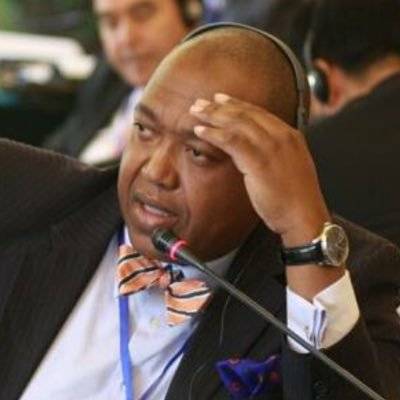The ongoing territorial dispute between the Sahrawi people of the Western Sahara and the Kingdom of Morocco is one of the manifestations of the unfortunate tragedies of the West’s colonisation of Africa. The less known and indeed less understood struggle of the people of the Western Sahara led by the Polisario Front has been a divisive factor and one of the origins of scepticism between North and Sub-Saharan Africa. Except for a few countries in Sub-Saharan Africa, there is large support for the Polisario in the region. This is not a surprise, as most countries in the region have been victims of colonialism. The Polisario is still fighting remnants of colonisation and for self-determination. It is demanding that the Sahrawi people should decide in a referendum whether they want to be part of Morocco or not.
Western Sahara borders Morocco, Algeria and Mauritania and has maintained a distinct socio-political tradition in north-west Africa. Each of these three countries have claimed part of the Western Sahara as their territory, with Morocco’s claim louder than the others. The domination of France in the regional politics of north-west Africa (the Maghreb) contributed to the exclusiveness and isolation of Western Sahara, which was the only territory in the Maghreb under the protectorate of Spain. Morocco gained independence from France in 1958; Spain, on the other hand, continued its role in Western Sahara until it abandoned its mandate to Morocco abruptly in 1976. It was after this period that the aspirations of independence for Western Sahara intensified.
After lobbying the Organisation of African Unity (OAU), Western Sahara — as the Sahrawi Arab Democratic Republic — was accepted as a member in 1982. Two years later, during the 20th Summit of the OAU, Morocco suspended its own membership of the organisation. As of 2016, 38 out of 54 members of the African Union (which replaced the OAU in 2001) recognised the Sahrawi Arab Democratic Republic. According to the statement issued by the AU, Morocco submitted a request to the current chair of the African Union Commission, Dr Nkosazana Dlamini Zuma, to join the union.
Read: Morocco threatens to cut EU ties if farm deal flounders
What has led to Morocco’s about-turn regarding Africa’s representative body? The argument put forward by Moroccan officials is that it will be easier to deal with the Western Sahara issue inside the AU. Morocco intends to use its membership to promote its political agenda, mainly to lobby more members to renounce their recognition of the Western Sahara; that’s what some senior officials have said.
However, Morocco lacks political incentives to influence those members of the AU who support and recognise the Sahrawi Arab Democratic Republic. It is also difficult to believe that Morocco will be allowed to pursue its open agenda of “discord” in the AU. What is rather more likely to happen is that the Polisario and Morocco might be encouraged to resume talks that may culminate in an amicable political agreement.
In truth, Morocco remains isolated and is beginning to feel the strain of that isolation. Like many North African countries, Morocco has been circumspect and often opportunistic in its dealings with Sub-Saharan Africa; it generally preferred the Arab League over the AU. That fact notwithstanding, the importance and influence of the Arab League has dwindled, especially since the 2013 coup in Egypt.
Also read: EU criticised for pandering to Morocco
Furthermore the lack of enthusiasm by the Obama administration towards the Palestine-Israel conflict has placed the Arab League even further away from the limelight. The Gulf Cooperation Council (GCC), meanwhile, has gained momentum and visibility in the international political arena, overtaking the Arab League.
Finally there are many economic benefits that continue to flow to Africa through various conduits provided by the AU. Morocco has been missing out on these benefits, including the important photo opportunities in a number of summits that Africa has had with several developed nations. It has also increased the bargaining power of Africa both politically and economically. The AU acts on behalf of those African countries that are too weak and poor to negotiate alone. Consequently the union has been facilitating the economic coordination between the developed world and Africa. The economic opportunities channelled through and by the members of the AU and the lobbying muscle that the bloc wields at different global platforms have left Morocco with little option but to reconsider its membership of the organisation.
The views expressed in this article belong to the author and do not necessarily reflect the editorial policy of Middle East Monitor.


![Moroccan King Mohammed VI attends the assembly of the African Union (AU), 2 February 2017 [Minasse Wondimu Hailu/Anadolu]](https://i0.wp.com/www.middleeastmonitor.com/wp-content/uploads/2017/02/2017_1_31-King-of-Morocco-addresses-AU-for-1st-time-in-34-years.jpg?fit=1200%2C800&ssl=1)









